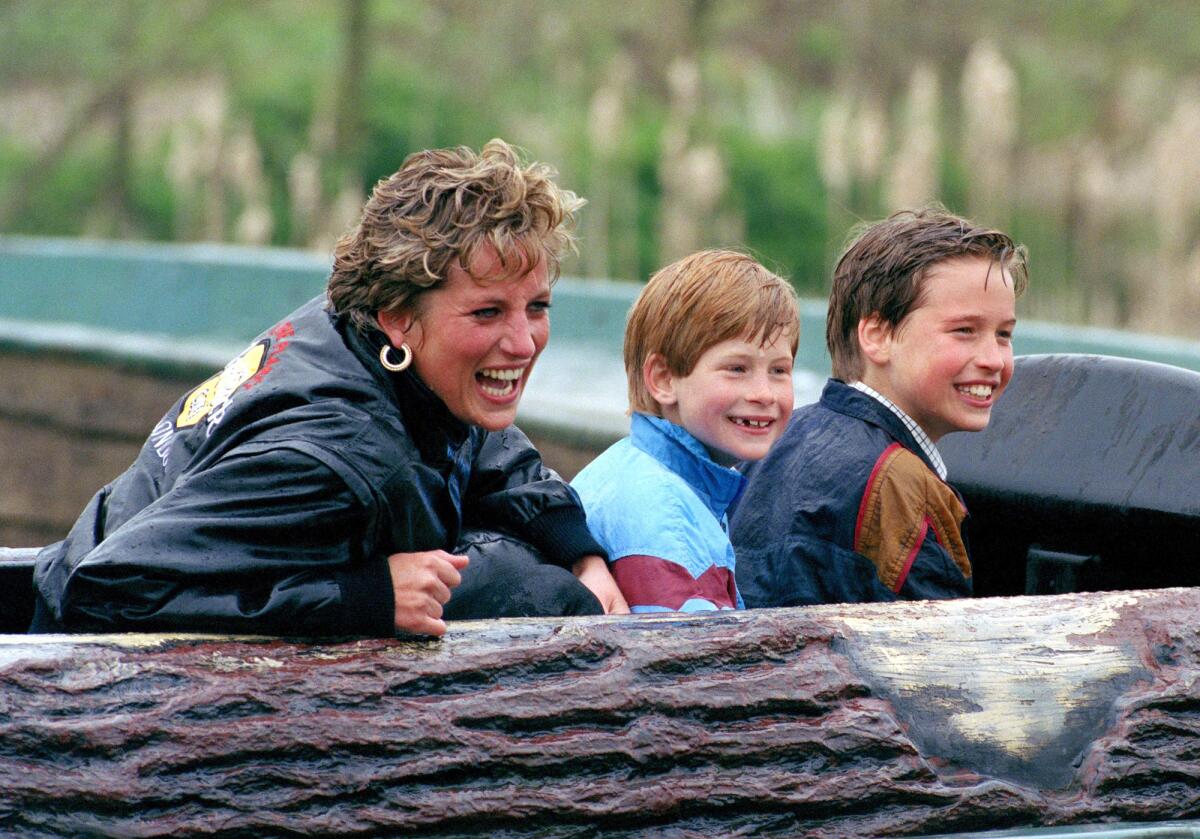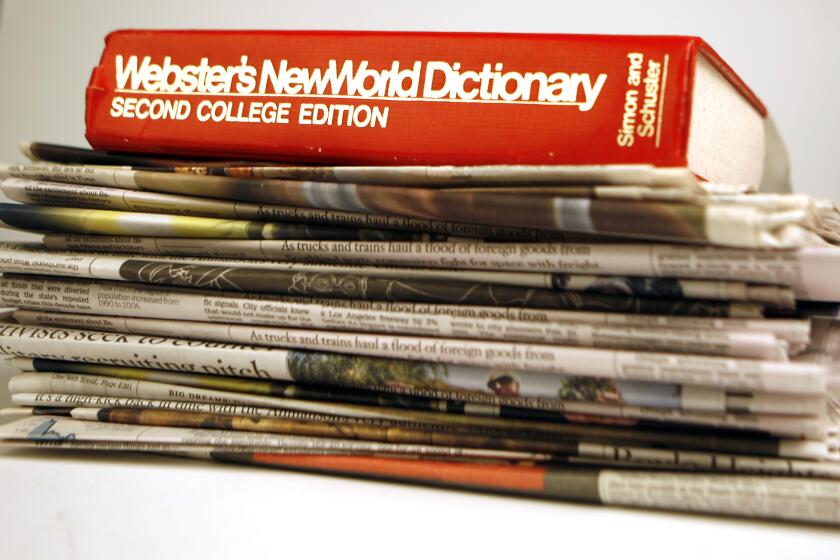A Word, Please: Are you the youngest or the oldest? Some say you might not be either

- Share via
If you have two children, ages 10 and 12, is the 12-year-old the oldest? Or is she the older? Can you say she’s your eldest child? Or must you say she’s the elder child?
The answer, believe it or not, is very controversial. Some people say that when you’re comparing only two things, you can’t use the superlative — the “est” form — and that only the comparative — the “er” form — will do.
Even the language bosses are bitterly divided.
“When two items are being compared, a comparative adjective is needed, ‘the greater of the two’; when more than two are being compared, the superlative is needed, ‘the greatest of the three,’” says the 2003 edition of Garner’s Modern American Usage, which calls it a “blunder” to use the superlative in comparisons of two.
Other experts make a strong case that superlatives are fine for comparisons of two.
“No one will misunderstand you if you say, ‘She is the oldest of the two,’” writes Merriam-Webster’s Dictionary of English Usage. “The rule serves no useful purpose at all. It is therefore a perfect shibboleth, serving no practical function except to separate those who observe the rule from those who don’t.”
Merriam’s also notes that real-world usage doesn’t reflect the supposed rule. And because all grammar and usage rules stem from the way we English speakers talk, this matters. “It is plain that many of our best writers have used either the comparative or superlative of two, as suited their fancy at the time,” says Merriam’s, which gives these examples.
“We cannot agree as to which is the eldest of the two Miss Plumbtrees,” Jane Austen wrote in a letter in 1811.
“Crane wrote two fine stories. ‘The Open Boat’ and ‘The Blue Hotel.’ The last one is best,” Ernest Hemingway wrote in “Green Hills of Africa.”
“English is pretty flexible, so more than one wording can be grammatical,” writes grammar expert June Casagrande, but “clearer,” she explains, is more standard and in some minds correct.
“And let us make incision for your love; To prove whose blood is reddest, his, or mine,” Shakespeare wrote in “The Merchant of Venice.”
Milton, Thoreau, Thackery and other esteemed writers also used superlatives this way.
Fowler’s Modern English Usage tries to reconcile these inconvenient examples by laying down a double-standard. “In general, it is a sound rule that confines the use of the comparative forms of an adjective to contexts in which two entities are being compared, and reserves superlative forms for comparison of three entities or more. But the English language is not a totally restrictive system,” notes Fowler’s. “Clearly there is a ragged edge at the rim of any strict rule, but the general pattern should normally be adhered to, leaving exceptions only to the truly great or to literary or linguistic license.”
Translation: Sure, great writers can use a superlative to compare two things, but you can’t.
Merriam-Webster’s dictionary, which is different from Merriam-Webster’s usage guide, offers this discussion of superlatives: “‘Bigger’ means that one thing is larger in size than another, and ‘biggest’ refers to the largest of its category, but what if the category consists of only two things?” the dictionary editors write. “Some people say that ‘the bigger of the two’ is preferable, but that choice depends on logic rather than grammar. There is also nothing wrong with calling the larger of two similar things the ‘biggest.’”
To me, logic clearly dictates that if you’re the bigger of two, you’re also the biggest. If your 12-year-old is the older of your two children, she’s also the oldest. If your car is the nicer of your family’s two cars, it’s also the nicest. In fact, every day I’m the smartest person in the room at my job. I work at home alone, which I can safely say renders me superlative to my co-workers for just about any adjective you can think of.
June Casagrande is the author of “The Joy of Syntax: A Simple Guide to All the Grammar You Know You Should Know.” She can be reached at JuneTCN@aol.com.
All the latest on Orange County from Orange County.
Get our free TimesOC newsletter.
You may occasionally receive promotional content from the Daily Pilot.






